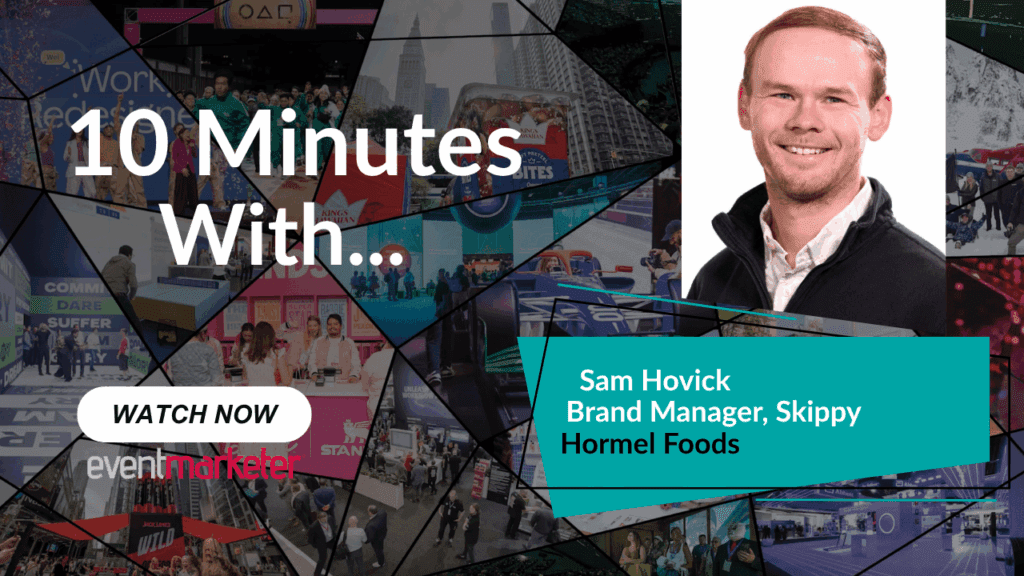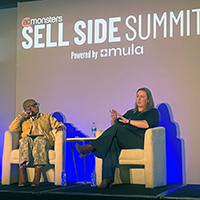
CHIEF MARKETER: In school, you majored in psychology. What was the attraction to advertising? There’s obviously a natural link.
LAZARUS: I was at Smith College and was getting a ride into New York from another girl in my house. She told me she was going to a career conference being given by Advertising Women of New York and asked if I wanted to go with her. I thought, sure, why not, even though I hadn’t really thought about advertising. As I listened to people talk, I became fascinated. It had never occurred to me that there was a strategy, there was a target audience, that there were different ways to position things to make them more attractive. It was basically stimulus and response, which is the most basic part of psychology.
CM: Early in your career, was your gender a significant issue in dealing with your colleagues and clients?
LAZARUS: I never found that. I was very frequently the only woman in the room. But it wasn’t awkward, it was powerful. If you’re the only woman and you’re selling products that are mostly used by women, eventually they’ll look at you and ask, “Well, Shelly, what do women think?” There was only one time in my entire career, when a new client — someone who had never even worked with me — told my boss he wasn’t really comfortable having a woman lead his business. And later, we actually became friends.
CM: Your first job after getting your MBA from Columbia was at Clairol, which you left to go to Ogilvy. Was that because of a desire to move from the client side to an agency?
LAZARUS: No, I just thought I would try both sides. It was obvious on the client side that the most exciting meeting over the course of the day was with the agency, not because they were charming or funny, but because they were bringing ideas. You could have strategy and consumer insight, but until it all jelled together into an idea, you couldn’t get excited about it, you couldn’t react to it. I didn’t find dealing with the sales force and trade promotions as exciting as the agency, so it was clear to which side I was leaning.
CM: Over your career, what have been the biggest changes in the agency world?
LAZARUS: When I first started, the business of an advertising agency was almost exclusively in the province of packaged goods clients. You were dealing with a very narrow set of problems, people who bought relatively inexpensive items frequently, with lots of brand choices. And there was kind of a formula, more or less. You would develop work for magazines and television. Then the biggest decisions were whether you were going to run on daytime or prime time. On the print side there were 12 magazines that appealed to women, and the biggest decision was whether to go into Woman’s Day or Family Circle. But it was pretty circumscribed, in terms of what options you were dealing with and what kinds of choices you were making. Over time, it’s all opened up and the marketing questions are bigger. It’s not what the advertising campaigns are going to be, it’s how are we going to get a million new customers. The questions and answers have gotten so much bigger.
CM: Do you think the way clients interact with agencies has evolved over the years? Do you think they expect more from their agencies today?
LAZARUS: I think clients often don’t ask big enough questions of their agencies. If you just ask a narrow question — “Can you make me a CRM program?” — most agencies will just give you a CRM program. But if you say, “I hate the fact that all my users are over 65, I’m going to be out of business soon, can you give me some ideas on how I can get a younger customer base?” you’re going to get a different answer. The smart clients do ask those questions. We call our general approach 360 degree branding, but that really doesn’t do it justice. For an agency, it’s the difference between being a supplier and being a partner.
CM: What’s your take on social media? Do you think it’s really revolutionizing advertising?
LAZARUS: No, and I think it’s the biggest opportunity we have. I don’t think we have any idea how to use social media as advertising media. We’re not there yet. Everyone knows how powerful it is, but we haven’t figured out how to use it as an advertising medium. One answer unfortunately unleashed a huge privacy issue. It was a brilliant use of social media when Facebook told users what their friends bought: “So and so just bought this movie on Amazon.” But unfortunately, it was a total invasion of privacy. But I keep saying, if you can find one solution you can find another one.
CM: Do you personally use social media?
LAZARUS: No. I just don’t have the time. It’s like a full-time occupation once you engage. I have like 147 messages waiting for me on LinkedIn or something, and I just won’t touch it. I don’t want to make that kind of commitment.
CM: Over your career, which campaigns stand out the most?
LAZARUS: The campaigns that have turned a company around. It’s not the stuff that won awards at Cannes. What’s enormously satisfying for me is the whole body of work we’ve done for American Express. It really helped build and define the brand, and there’s no more significant contribution you can make to a client. And the work we did for IBM when Louis Gerstner came in and the company was almost at death. It turned around the IBM brand, which in turn unleashed all the energy of the company again. These are things that made a difference to the business at large.
CM: What changes do you see happening in advertising over the next decade?
LAZARUS: Online, search is brilliant and all the display stuff is okay. But we’re going to have to figure out how to use the Internet interactively to make it a powerful ad medium. When I headed up Ogilvy Direct, everything we did was to simulate real conversation with a real consumer in real time. Get to today and you can have that kind of interaction. You can talk back and forth in real time. The fact that we’re still spending most of our money on display ads [online], which are really just like small space print media ads, doesn’t make any sense to me.
TO FIGURE OUT WHERE YOU’RE HEADED, SOMETIMES A LITTLE PERSPECTIVE HELPS. With a career starting just past the tail end of what some call the “Mad Men” days, Ogilvy & Mather Worldwide chairman Shelly Lazarus has just that. This month at DMA 09 in San Diego, Lazarus will be inducted into the Direct Marketing Association Hall of Fame. She recently took the time to talk with Chief Marketer about her early days in the industry and what changes she sees on the horizon of advertising.
A “Mad Woman’s” Take
CM: What do you think of the TV show “Mad Men”?
LAZARUS: It’s brilliantly art directed, although the plot is a little slow for me. I joined [the ad industry] about 10 years after “Mad Men” is supposed to take place, but I’m pretty sure they nailed the way women were treated. The only women who had professional roles had started as secretaries. There was a lot of smoking, but there was no drinking in the office — at least at Ogilvy there wasn’t. There was a lot of drinking going on in the restaurants around the agency, so that could have been before [my time]. And it would be my assessment that there was a lot of romantic entanglement in the workplace. And I think a lot of the women were like the women in “Mad Men.” They were smart, they knew what their role was, and they knew what was expected of them. I think they captured women in advertising in the 1950s.



